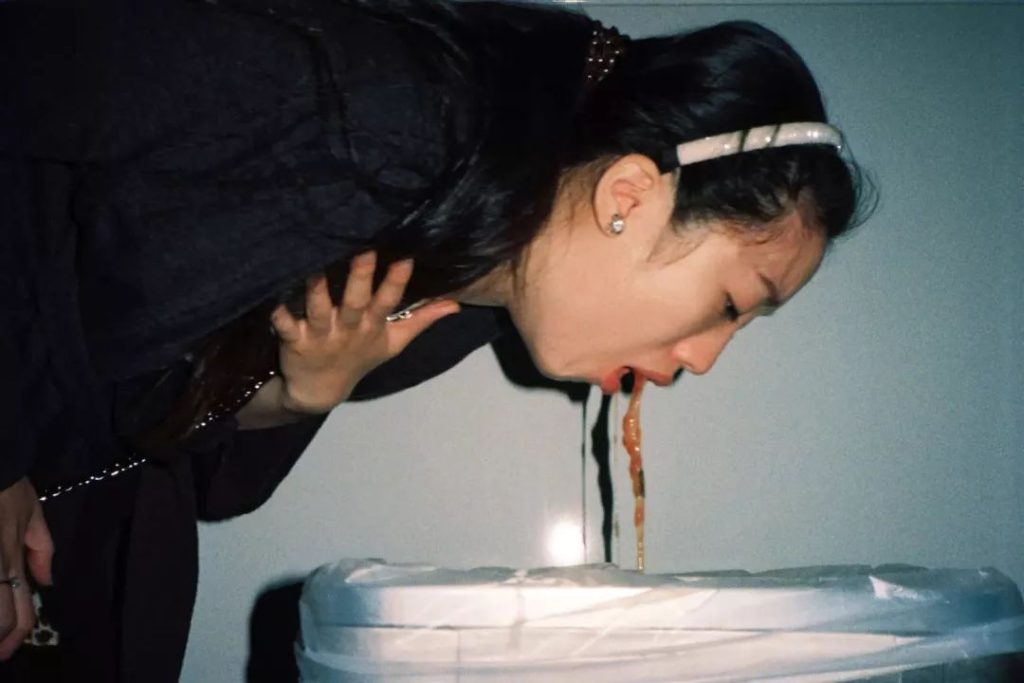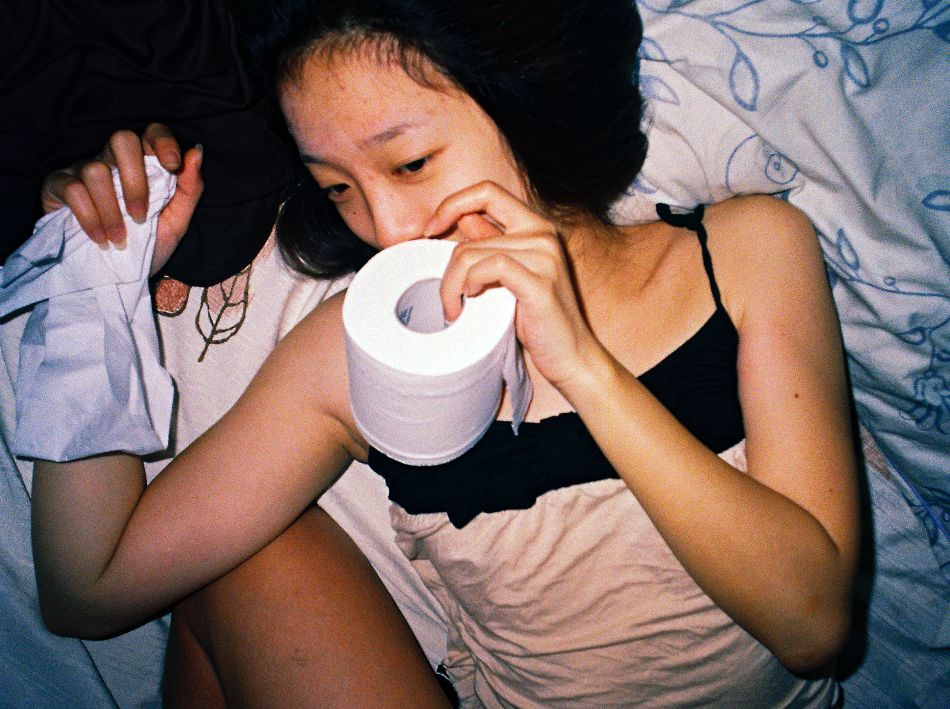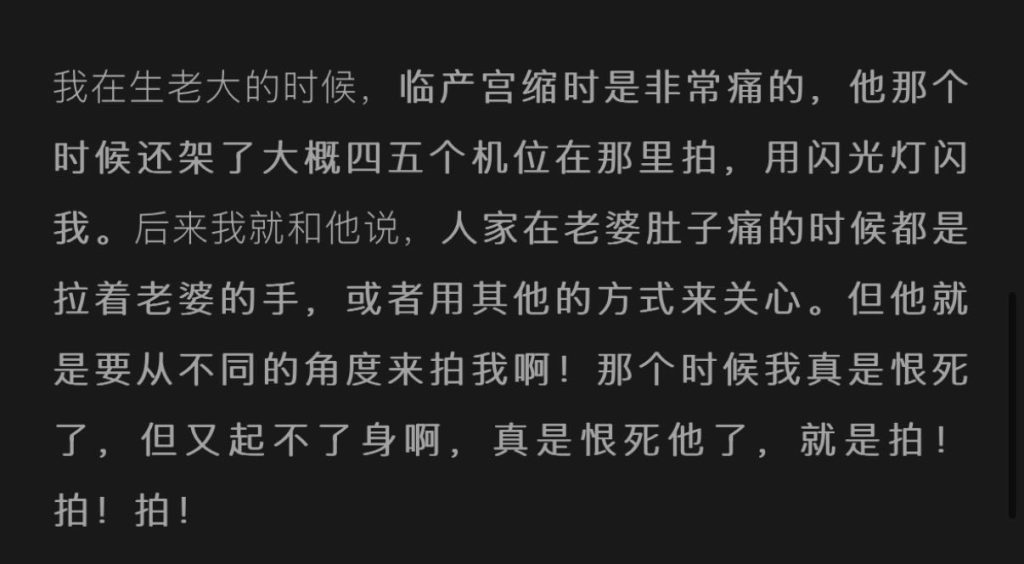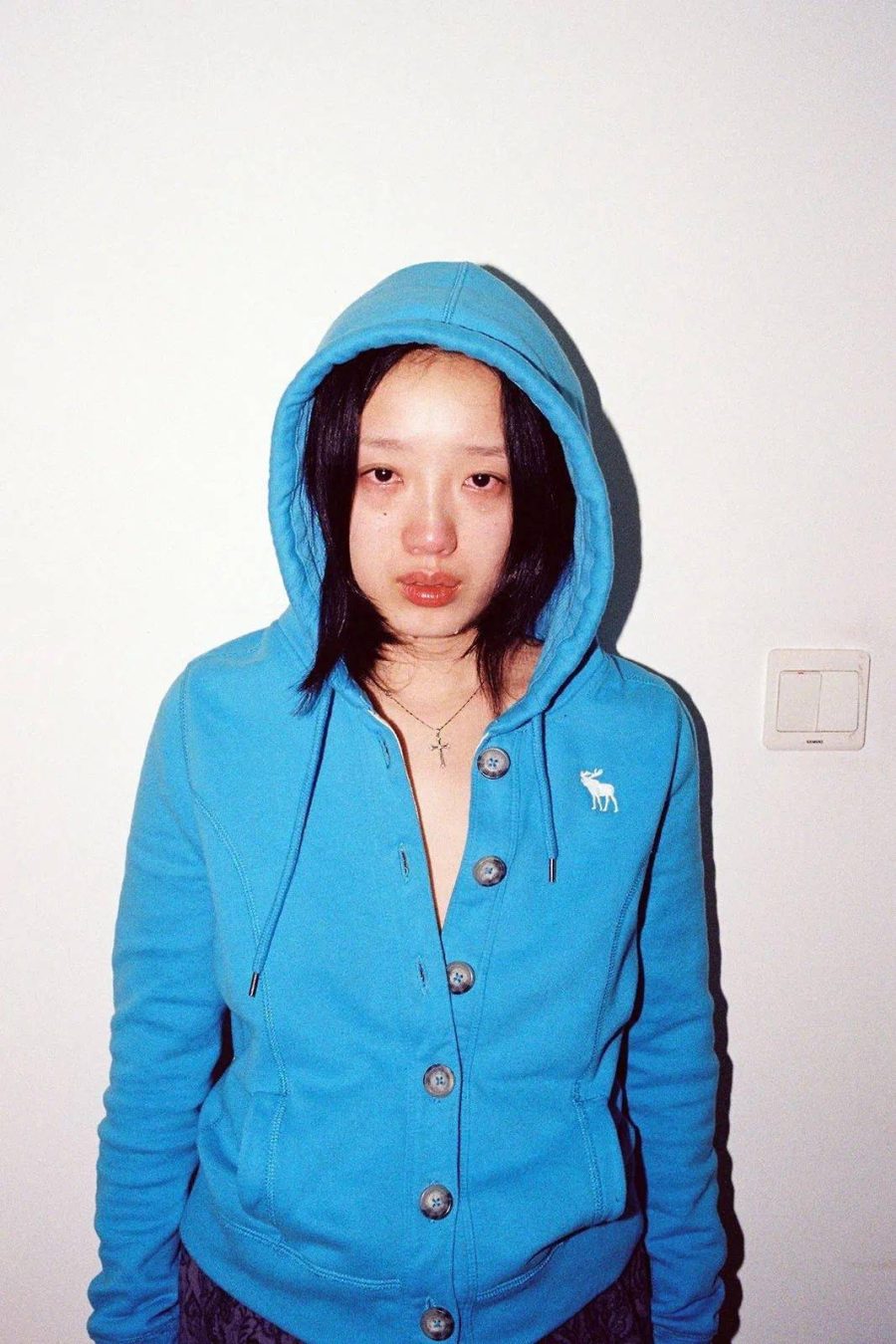Male gaze is a social and cultural phenomenon, defined as women being seen as the “second sex,” while men become the “first sex” to be observed and gazed upon through various media and channels. It is believed that the narrative and portrayal of women in movies are constructed in an objectified and restrictive manner to satisfy the psychological desires of men, and more broadly, the psychological desires of patriarchal society. There is a clear presence of’male gaze’ in the media, which objectifies women and defines their identities based on male roles (Rodriguez, 2019). Mulvey‘s theory considers the combination of three different perspectives or appearances in movies to maintain a symbolic order that grants male privilege: camera perspective, audience perspective, and character perspective (Mulvey, 1975).




From 2008 to 2015, Dai Jianyong (Coca Dai) continued to take photos of Zhu Fengjuan’s daily life. These photos were later compiled into a book and published as the photography collection “Zhu Fengjuan (Judy Zhu)(LensCulture, n.d.). At the beginning, this work was seen as an intimate narrative about contemporary women, but over time, some discussions about the “male gaze” in the work have gradually appeared.
“When I was giving birth to my first child, the contractions before delivery were excruciatingly painful. At that time, he had set up four or five cameras around me, taking photos with flash after flash… just kept photographing me from every angle. I hated him so much at that moment, but I couldn’t even get up. I was furious—just shoot, shoot, shoot!”
–Interviwed by Judy Zhu (Hayami, 2023)

In the “Zhu Fengjuan” series, Dai plays the role of an observer and uses his camera to capture his wife’s life, filming everything from their first meeting to their marriage and motherhood. Some detractors contend that, via Dai’s vision, Zhu Fengjuan seems as a commodity, presented for others to see. This filming strategy is viewed as a violation of women’s privacy and subjectivity, indicating male domination in artistic creativity (CLEAR, 2023).
Some people claim that, while Dai Jianyong’s paintings are titled “love,” they are truly about his gaze and power over his wife. This gaze has been characterized as a display of dominance, putting women in a passive position with no subjectivity. In creative production, male gaze always conceals objectification and domination over women under the pretext of “love” or “beauty” (CLEAR, 2023).
Unequal power: Zhu’s body, which is incredibly delicate and in need of care, becomes the material for her husband’s creative work, resulting in the loss of her privacy and autonomy.
Objectification of the body: Her sorrow is artistically and abstractly converted into visual stuff for others to observe, rather than conveying her actual feelings as a subject.
This circumstance is compatible with Mulvey’s theory: a woman’s body is seen, photographed, and devoured while her inner world or autonomy is neglected.
Dai’s works operate within a patriarchal structure, where men not only dominate artistic creation but also determine the way women express themselves. Zhu’s life becomes a carefully planned spectacle, with her identity and body framed, displayed, and consumed for artistic and social purposes.
Reference list
A-p.berlin. (2015). JUDY ZHU / 朱凤娟. [online] Available at: https://www.a-p.berlin/products/judy-zhu [Accessed 2 Dec. 2024].
CLEAR (2023). 凝视即权利 ‘Gazing is Power’. [online] 豆瓣. Available at: https://book.douban.com/review/15348640/?utm_source=chatgpt.com [Accessed 14 Dec. 2024].
LensCulture, C.D. | (n.d.). Photographing Judy Zhu – Photographs by Coca Dai | Interview by Cat Lachowskyj. [online] LensCulture. Available at: https://www.lensculture.com/articles/coca-dai-photographing-judy-zhu.
Mulvey, L. (1975). Visual Pleasure and Narrative Cinema. London Afterall Books.
Rodriguez, I. (2019). The Male Gaze: Definition & Theory – Video & Lesson Transcript | Study.com. [online] Study.com. Available at: https://study.com/academy/lesson/the-male-gaze-definition-theory.html.
早见Hayami (2023). 艺术家的妻子:‘宫缩剧痛时,他架了四五个机位在拍我’ (Artist’s Wife: ‘During excruciating contractions, he set up four or five cameras to film me.’). [online] Weixin Official Accounts Platform. Available at: https://mp.weixin.qq.com/s/iv-IF8DFaEoxXVZwsu0C7A.

